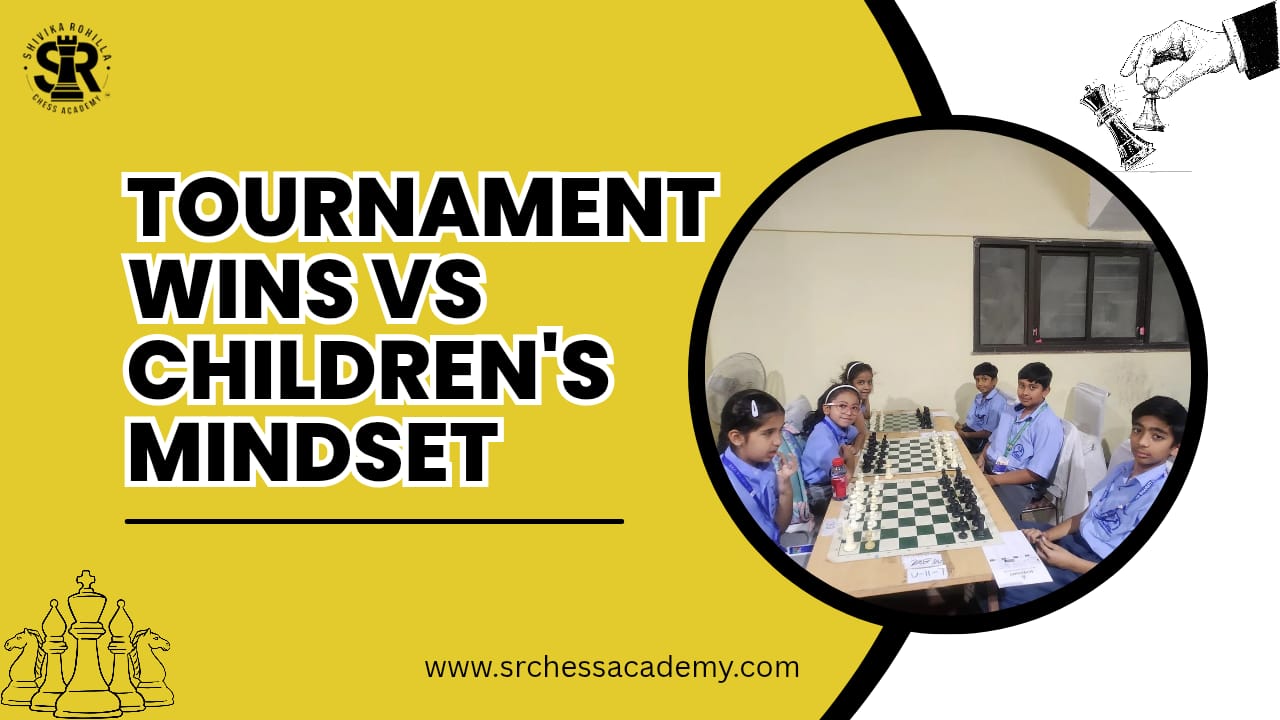
Tournament Wins vs Childrens Mindset
What Every Parent Should Know (With Real-Life Fun!)
When it comes to children and chess tournaments, one truth stands tall: winning feels amazing — but the mindset behind winning matters even more.
As a chess consultant, a parent, and someone who's spent countless weekends freezing in AC halls — or sweating outside non-AC ones — I can say confidently: chasing trophies without building a resilient mindset is like putting a cherry on an empty cake.
In this article, let’s dive into the relationship between tournament wins and children’s mindsets, peppered with real-world stories, parent experiences, psychologists' advice — and a pinch of humor to keep it relatable!
Why Tournament Wins Matter... and Why They Don't
Trophies glitter. Medals jingle. Certificates are proudly stuck on fridges. Tournament wins give validation, boost confidence, and teach kids that hard work pays off.
But here's the catch: when wins become the only goal, mindset cracks start to appear.
- Anxiety before matches ("What if I lose?")
- Anger after losses ("I’m not good enough!")
- Fear of trying ("Better not play if I might lose!")
As Dr. Meenakshi Sharma, a child psychologist specializing in sports performance, points out:
"The process of learning and evolving in tournaments should be more important than the outcome of a win. Otherwise, children start linking self-worth with medals, and that's dangerous."
Reality Check: What Parents and Kids Really Go Through
If you’ve been to tournaments recently — like the Delhi State Chess Championship held at Major Dhyan Chand Stadium — you know the struggle is real!
Parents sitting for hours outside non-AC halls, sometimes on dusty floors, sometimes in corridors, sometimes braving the scorching Delhi heat 🥵 — all while trying to catch a glimpse of their child playing inside.
Meanwhile, kids are battling not just their opponents, but also dehydration, exhaustion, and pure mental fatigue.
It’s not a cakewalk. It’s a battle of patience, grit, and lots of sweat (literally).
Are You That Parent? (It's Okay — But Let's Fix It)
Be honest:
👉 Are you the parent who immediately asks, “What’s the result? Why didn’t you win?” the second your child steps out of the hall?
If yes — STOP. ✋
That’s exactly where things start to go wrong.
Yes, it’s good to be ambitious.
Yes, you want your child to win.
But consider a child's mindset and mental health first.
When a child has already endured hours of mental battles (sometimes against 10-year-olds who play like Kasparov), the last thing they need is pressure and judgment.
What they need is a hug, a smile, and a "I'm proud of you for trying your best."
What Parents Should Do
1. Celebrate Effort, Not Just Outcome
Instead of saying, "Did you win?" try saying,
👉 "How do you feel about your game? I'm proud of your efforts!"
2. Teach Them "Losing is Learning"
Chess isn’t just about winning. It’s about outgrowing mistakes.
Chess mom and veteran parent Shruti Kapoor says,
"We treat every loss like a research project. That way, my daughter doesn't fear losing — she fears not learning."
3. Model Calmness
Be the cool, Zen parent. If you panic, they panic.
What Parents Should NOT Do
1. Brag Too Early, Too Loudly
Premature celebration creates unrealistic expectations.
(Pro Tip: The moment you post “My kid’s a champ!” on Instagram, fate sends a 1400-rated prodigy with an appetite for rooks.)
2. Compare Children
Each child’s journey is different. Comparisons are shortcut roads to self-doubt.
SRCA: Your Support System on and off the Board
At Shivika Rohilla Chess Academy (SRCA), we believe chess is as much about building strong people as strong players.
SRCA is more than just an academy — it’s a support system for both parents and players.
From handling wins and losses, to mental coaching sessions, to emotional support after tough tournaments — we're with you through every move.
And because chess should also be about pure, relaxed joy, we created Chess Coffee Connect — casual fun events where kids, parents, and coaches come together to play, laugh, and enjoy.
No trophies. No pressure. Just good moves, good moods, and great coffee.
Final Words: Raise a Happy Player, Not a Trophy Collector
The goal is not just to raise champions — but to raise happy, confident, learning-loving humans.
Trophies may gather dust, but a strong mindset stays polished for life.
So next time your child wins?
Celebrate the effort.
And next time they lose?
Celebrate the courage to play.
After all, as one witty chess parent said:
"In chess and in life, you either win, or you get a plot twist. Both make a good story."
